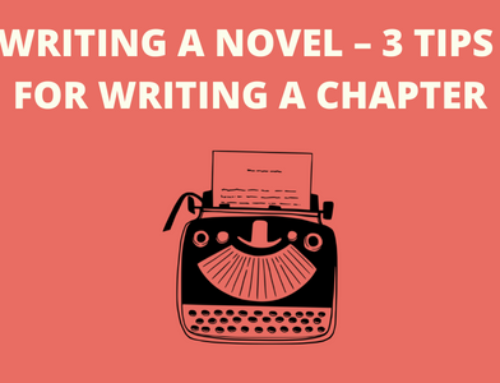Write a Novel during NaNoWriMo
I am a writer. Like many, I have dreamed about writing a novel, studied it, and read about it. I have read countless books on writing by authors like Ray Bradbury, Anne Lamott, and Natalie Goldberg. And all have unanimously and independently agreed on one piece of advice: writers can write garbage. Lamott was the one who coined the term “shitty first drafts,” I believe, but even before she wrote a chapter about it in her book Bird by Bird, writers have been teaching this concept since before the dawn of time.
Before any writer decides to sit down and write a cohesive and creative work of art, they must come to terms with the fact that they might write a collection of the most incredibly horrible and despicable pages of their lives. These pages will make the writer eye their paper, screen, or ceiling with a blank, empty stare that makes them question their degree, their passion, and perhaps their life calling. This can cause the worst headache imaginable and might compel the artist to quit altogether because their work isn’t coming out seamlessly.
Allow yourself to write junk. Remember that your favorite novel had about twenty drafts before it was published and became known for iterating life with compelling nature, imagery, and precision. Write things down as they come to you, as if time is running out and you have no business seeking out perfection.
Establish Writing Habits

The life of a writer imitates the process of writing a novel. Wake up, write, eat, go on a walk, write again, sleep, wake up in the middle of the night, jot down a thought, and do it again. A writer never stops thinking and capturing their thoughts on paper. From this disarray of words, a story will bloom, just as flowers bloom from heaps of manure underfoot.
Lamott mentions the words of E. L. Doctorow in Bird by Bird:
“Writing a novel is like driving a car at night, you can only see as far as your headlights, but you can make the whole trip that way.”
This sentence, I believe, compels you to write the train of thought, as terrible as it may be, to come out as you see it. Frame by frame, memory by memory, “bird by bird,” like Anne Lamott’s father said. Only once the idea of writing terrible first drafts becomes acceptable — with more feelings of release and fewer of perfection— can the journey truly begin.
Join a Writing Community
The next thing I would suggest is to join a writing group where you can share your work. Seeking feedback from other writers is a step of the journey that I was always very resistant to. It’s the most vulnerable thing to write a piece of fiction derived from personal heartbreak or trauma and have other people pick it apart in front of you. But becoming used to others’ eyes on your work allows you to write with your readers in mind. It helps to make your story something you can include the reader in on instead of it being sort of an inside joke that others only feel they are intruding on and cannot understand. Workshopping your novel will lead to feedback, notes, and so many possible drafts.
Going back to trashy first drafts for a rewrite — this is where the story truly grows. It allows the characters and settings to grow in ways that word vomiting a train of thought on the page never allowed the writer to do.
Substance is found in drafts that can always be improved upon.
There may be something you like in every bit of “terrible” writing saved that you will be able to interlace in the final draft. In a plethora of junky drafts, you will find your characters and timeline. You will find the beginning and the end to your book.
Start Anywhere
Before I began creative writing classes in college, I thought I had to start on the first page of the first chapter and write till the end. This, I soon learned, is what not to do. Just like you wait to write the first paragraph of an essay till the rest is written, so you can add what’s needed later. Many novel authors write their opening chapter last. Answers will come without tactfully and forcefully seeking them out.
Be Brave!
Writing a novel is like writing anything. It’s also like growing as a person and finding oneself.
You’ve got to take risks, be open to learning and failing, and never missing out on an opportunity to get to know yourself.
Writing a novel is like organizing your thoughts in a cohesive manner, and this could never be done without an impressive mess first.
Writing a novel is like deciding to live life to the fullest. It’s like writing a school paper or baking a cake. Writing a novel is like going from middle school to high school to college and changing career paths in the end to follow your dreams. It’s growth and change and perseverance. It’s a challenge, which is why I think anyone could do it, as long as they are willing to accept terrible first drafts and keep writing.
National Novel Writing Month
National Novel Writing Month (NaNoWriMo) begins November 1, and there’s simply no better way to find a writing community that shares your goal of writing 50,000 words in a month. You can find your tribe and use the tools and advice shared to get those words down so you have something to work with later.
- All About NaNoWriMo
- How to Get Started on NaNoWriMo
- Find Local or Online Writing Communities and Events
If you have no words, you have nothing to edit, nothing to rewrite, nothing to work with. So get that first draft written and springboard your career from there.

Niccola Pelicano is an Austin, TX-based writer. She graduated from St. Edward’s University in 2021 and has a bachelor’s degree in writing, rhetoric, journalism, and digital media. She is currently freelancing and writing her own monthly newsletter and would love to one day publish her very own book.




